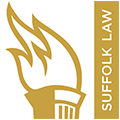
Christopher Tolley
Meeting Your Business And Personal Legal Needs
Your needs are our needs. Your goals are our goals. We strive to provide our clients the best representation we can, employing rigorous legal analysis and considerable experience to develop client relationships where we consistently deliver success. From common to complex legal issues we seek solutions that are creative, inventive, even counter-intuitive – but always practical.
Our areas of practice include:
Debt Collection Regulation - Federal and Massachusetts
Construction Supplier Litigation
Real estate transactions – buying, selling, mortgages title issues, title insurance
Commercial and Consumer Collections
Commercial And Consumer Mortgage Foreclosures
Personal injury
Chapter 7 and 13 for Individuals and Small Businesses
Bankruptcy and creditors’ rights litigation
Focus and Determination
We are diligent and proactive, thorough and meticulous. We expends the time and resources necessary to fully address our clients’ needs. As a small office, we give our clients’ matters personal attention.
Collaboration and Litigation
We have the experience and judgment to employ negotiation, collaboration and strategic concession as needed, as well as the flexibility to abandon either friendly or hostile approaches to meet evolving needs.
Keeping You Informed
You are our partner and employer. Your understanding of what we are doing and why is critical to our success. We keep you informed so you can advise us on whether we are performing according to your goals, needs and wants. We are always here to answer questions.
Part of a Team
The Phillips & Angley culture of mutual support and collaboration means I and my clients can call on the additional wealth of experience and acumen of my colleagues.
Please call me at 617-367-8787 or email at ctolley@phillips-angley.com to learn more.
Phillips & Angley
1 Washington St. Suite 7A
Boston, MA 02108
YOUR GOALS ARE OUR GOALS. YOUR NEEDS ARE OUR NEEDS.
- Consumer Law
- Class Action, Lemon Law
- Construction Law
- Construction Contracts, Construction Defects, Construction Liens, Construction Litigation
- Real Estate Law
- Commercial Real Estate, Condominiums, Easements, Eminent Domain, Homeowners Association, Land Use & Zoning, Mortgages, Neighbor Disputes, Residential Real Estate, Water Law
- Collections
- Bankruptcy
- Chapter 11 Bankruptcy, Chapter 13 Bankruptcy, Chapter 7 Bankruptcy, Debt Relief
- Personal Injury
- Animal & Dog Bites, Brain Injury, Car Accidents, Construction Accidents, Motorcycle Accidents, Premises Liability, Truck Accidents, Wrongful Death
-
Free Consultation
Initial consultation and discussion of your legal matter is free. - Contingent Fees
-
Rates, Retainers and Additional Information
I work almost exclusively on an hourly basis. For certain matters I accept flat fees. I accept contingent fees only after consultation and investigation.
- Massachusetts
-

- 1st Circuit
-

- English: Spoken, Written
- Board of Governors, Mill Corner COndominium Association
- Current
- Town of Acton Planning Board, Former Chairman, Former Member
- Current
- Suffolk University Law School
- J.D. (1986)
-

- Bowdoin College
- B.A. (1981)
-

- American Bar Association
- Current
-

- Real Estate Bar Association
- Current
-

- Massachusetts State Bar # 548180
- Member
- - Current
-

- Q. Contractor didn't complete project after $70k payment. Seeking legal action for in-law apartment issue.
- A: At the risk of stating the obvious you should take this matter to an attorney. Give them all your files and relevant documents and give a full chronology of the matter including the contractor's position as you understand it.
- Q. Can I sue for a junkyard car part causing issues?
- A: In order to sue, you have to have an agreement or representation by the mechanic that the part was going to be new, that the mechanic breached the contract by installing a used part, or his representation was false, and you have to have damages a result of the mechanic's breach of the contract or false representation. Assumng your damages are less than $7,500, you can sue in small claims court.
- Q. Do I have a case for medical mistreatment and misidentification after a hospital visit in MA, November 2024?
- A: This is a question for a medical malpractice attorney. I think we are not supposed to give you actual names of attorneys but if you check the internet the big local firms will come up, Lubin & Meyer, Crowe & Haris, etc. Try one of them.